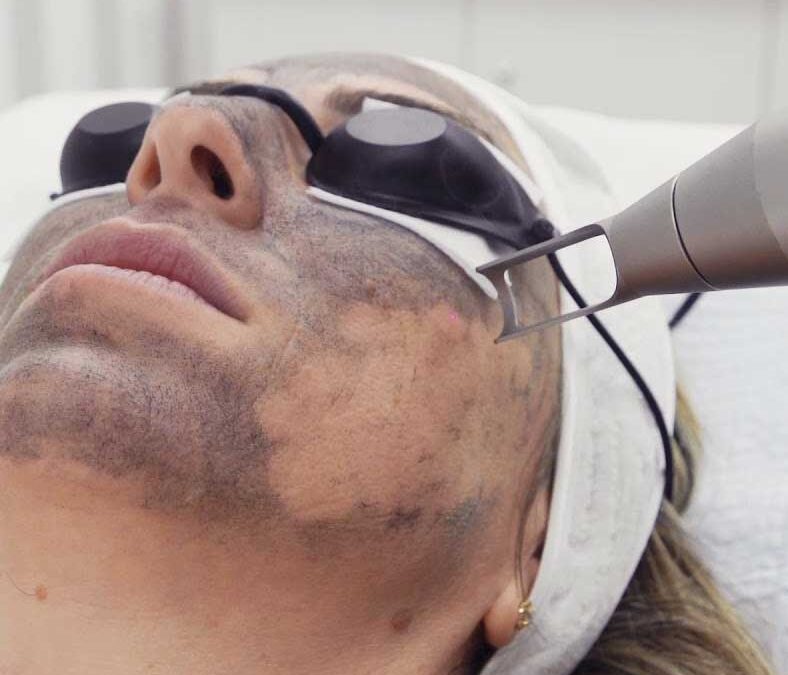In today’s fast-paced healthcare environment, trained professionals are the backbone of effective patient care and community health initiatives. For those aspiring to build a career in this field, the Certificate III in Healthcare Assistance offers a comprehensive foundation. This qualification equips individuals with critical skills and knowledge to deliver exceptional healthcare services, especially in community and rural settings. Whether you’re just starting your healthcare journey or seeking a specialization, this program serves as an invaluable stepping stone.
In this blog, we’ll explore the top skills you’ll gain from a Certificate III in Medical Assistance and how these skills can transform your career.
1. Foundational Healthcare Knowledge
Understanding the basics of healthcare is critical for any health worker. The Certificate III Health Worker Program covers foundational subjects such as anatomy, physiology, and medical terminology.
-
Key Learning Outcomes:
-
An understanding of the human body and its systems.
-
Familiarity with common illnesses and their symptoms.
-
Basic knowledge of disease prevention and health promotion.
-
-
Real-World Application:
This knowledge allows you to recognize early signs of health issues, provide initial care, and support patients in managing chronic conditions.
2. Effective Communication Skills
Healthcare relies heavily on clear and compassionate communication.
-
Key Learning Outcomes:
-
How to communicate effectively with patients, families, and colleagues.
-
Techniques for active listening and empathy.
-
The ability to convey complex medical information in simple terms.
-
-
Real-World Application:
As a health worker, you’ll interact with diverse individuals. Strong communication skills help in building trust, ensuring patient comfort, and fostering collaboration within healthcare teams.
3. Cultural Competency
In multicultural societies, understanding cultural nuances is vital for delivering equitable healthcare.
-
Key Learning Outcomes:
-
Awareness of cultural diversity and its impact on health.
-
Skills to adapt care approaches to meet cultural needs.
-
Respect for traditional healing practices in Indigenous and local communities.
-
-
Real-World Application:
This skill is particularly relevant in Australia and other culturally rich countries where health workers often serve Indigenous populations or recent immigrants.
4. Health Assessment Skills
Conducting thorough and accurate health assessments is a cornerstone of healthcare delivery.
-
Key Learning Outcomes:
-
Techniques for assessing vital signs like blood pressure, pulse, and temperature.
-
Identifying risk factors and early signs of health deterioration.
-
Documentation and reporting of findings.
-
-
Real-World Application:
Health assessments enable timely interventions, improving patient outcomes and preventing complications.
5. First Aid and Emergency Response
Emergencies can occur anytime, and health workers must be prepared to act quickly.
-
Key Learning Outcomes:
-
Proficiency in administering first aid and CPR.
-
Responding to incidents like choking, fractures, or burns.
-
Handling emergency situations with composure.
-
-
Real-World Application:
Whether in a clinic, community center, or remote location, your ability to provide immediate care can save lives.
6. Team Collaboration and Leadership
Healthcare is a team effort, requiring seamless collaboration among professionals.
-
Key Learning Outcomes:
-
Understanding roles within a multidisciplinary team.
-
Leadership skills to manage small healthcare teams.
-
Conflict resolution and decision-making under pressure.
-
-
Real-World Application:
Teamwork ensures efficient care delivery. As a health worker, you’ll often coordinate between doctors, nurses, and administrative staff.
7. Infection Control and Hygiene
Preventing infections is a critical aspect of healthcare, particularly in post-pandemic times.
-
Key Learning Outcomes:
-
Knowledge of infection transmission and prevention.
-
Proper use of personal protective equipment (PPE).
-
Sterilization and hygiene best practices.
-
-
Real-World Application:
These skills protect both patients and healthcare workers from preventable infections, ensuring safer healthcare environments.
8. Health Promotion and Education
Empowering communities to make informed health decisions is a rewarding part of this role.
-
Key Learning Outcomes:
-
Creating and delivering health education programs.
-
Counseling patients on lifestyle changes for better health.
-
Promoting vaccination, hygiene, and nutrition awareness.
-
-
Real-World Application:
Health workers play a vital role in disease prevention by educating communities about healthy living practices.
9. Administrative Competence
The Certificate III Health Worker Program also includes training in healthcare administration.
-
Key Learning Outcomes:
-
Managing patient records and medical documentation.
-
Scheduling appointments and coordinating patient care.
-
Understanding healthcare policies and regulations.
-
-
Real-World Application:
Administrative skills are essential for maintaining smooth operations in healthcare facilities.
10. Emotional Intelligence
Healthcare is as much about emotional support as it is about physical care.
-
Key Learning Outcomes:
-
Developing empathy and patience.
-
Managing personal stress and preventing burnout.
-
Supporting patients and families through challenging times.
-
-
Real-World Application:
Emotional intelligence helps in handling emotionally charged situations, from comforting patients to mediating conflicts.
11. Specialized Skills for Indigenous and Remote Healthcare
Serving underserved areas requires unique skills and adaptability.
-
Key Learning Outcomes:
-
Providing care in resource-limited settings.
-
Addressing the unique health challenges of Indigenous populations.
-
Implementing community-based healthcare initiatives.
-
-
Real-World Application:
Many graduates work in rural and Indigenous health, where these skills bridge gaps in healthcare access.
12. Technological Proficiency
The integration of technology in healthcare has transformed service delivery.
-
Key Learning Outcomes:
-
Using electronic health records (EHR) and telehealth platforms.
-
Operating basic medical equipment.
-
Staying updated on emerging healthcare technologies.
-
-
Real-World Application:
Tech-savvy health workers can enhance patient care and efficiency, especially in digital-first healthcare systems.
13. Advocacy and Patient Rights
Ensuring patients receive fair and respectful treatment is a critical responsibility.
-
Key Learning Outcomes:
-
Understanding patient rights and ethical healthcare principles.
-
Advocating for vulnerable populations.
-
Promoting equitable access to healthcare services.
-
-
Real-World Application:
Advocates make a significant impact by addressing systemic inequalities and supporting marginalized communities.
Career Opportunities After Completing Certificate III Health Worker Program
Graduates of this program have diverse career paths available:
-
Community Health Worker
-
Indigenous Health Liaison Officer
-
Aged Care Assistant
-
Disability Support Worker
-
Allied Health Assistant
Each role leverages the skills gained during the program, allowing graduates to make meaningful contributions to healthcare.
Why Choose a Certificate III Health Worker Program?
Community Health Assistance Qualification not only opens doors to fulfilling careers but also empowers individuals to make a difference in their communities. It provides a blend of theoretical knowledge and practical skills, ensuring you’re well-prepared for real-world challenges.
Conclusion
The Certificate III Health Worker Program equips you with an array of skills that go beyond technical proficiency. From effective communication to infection control, health promotion, and cultural competency, these capabilities make you a well-rounded healthcare professional. Whether you aim to work in a hospital, community clinic, or remote area, this program ensures you have the tools to succeed.
If you’re passionate about healthcare and eager to contribute to the well-being of your community, consider enrolling in a Certificate III Patient Care Program. The journey may be challenging, but the rewards—both personal and professional—are truly unparalleled.
Start your healthcare career today! Enroll in the Certificate III Health Worker Program and become a vital part of the healthcare industry. Explore your potential and make a lasting impact.







0 Comments